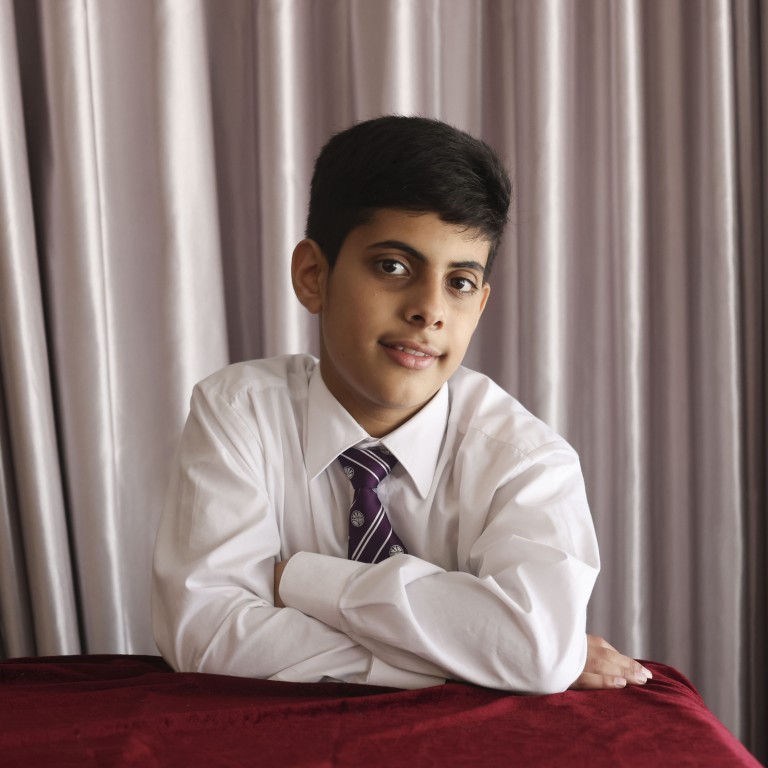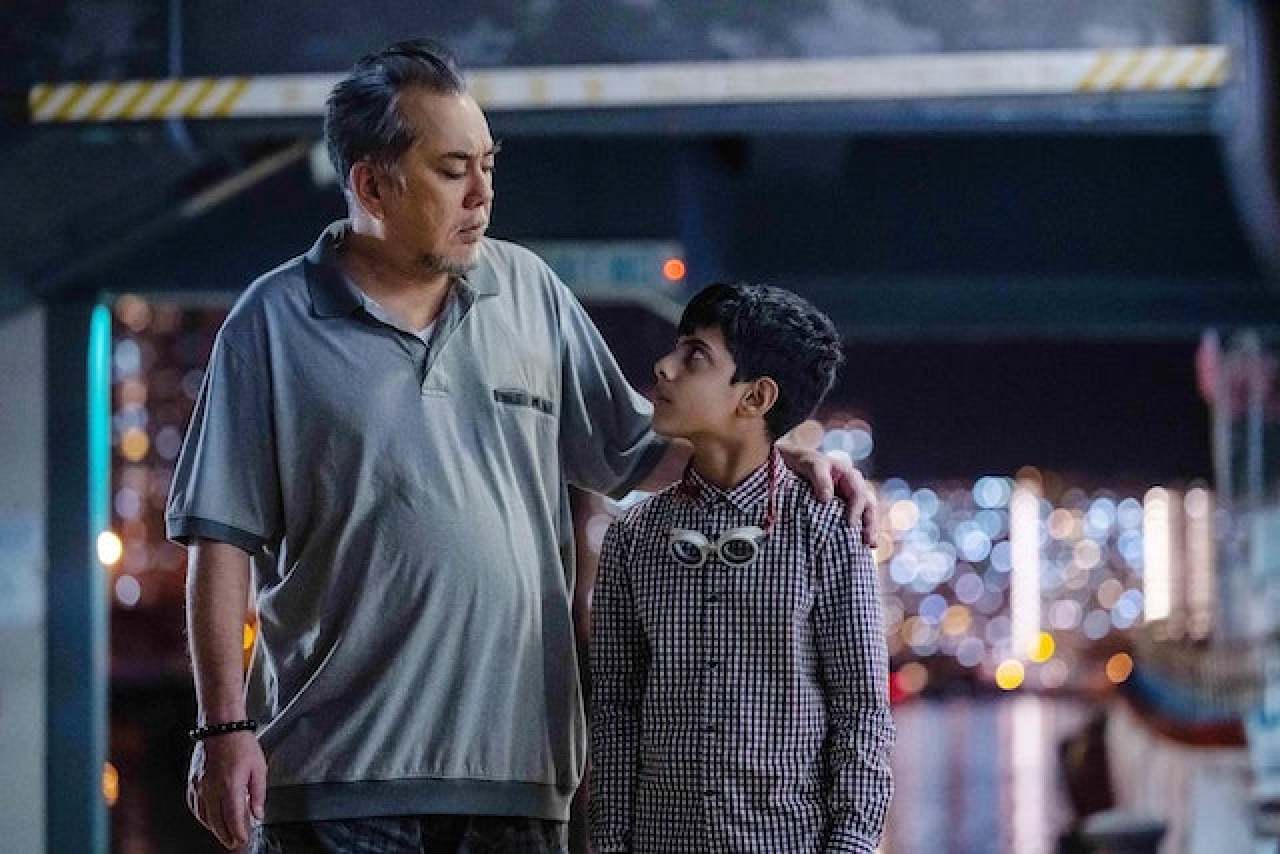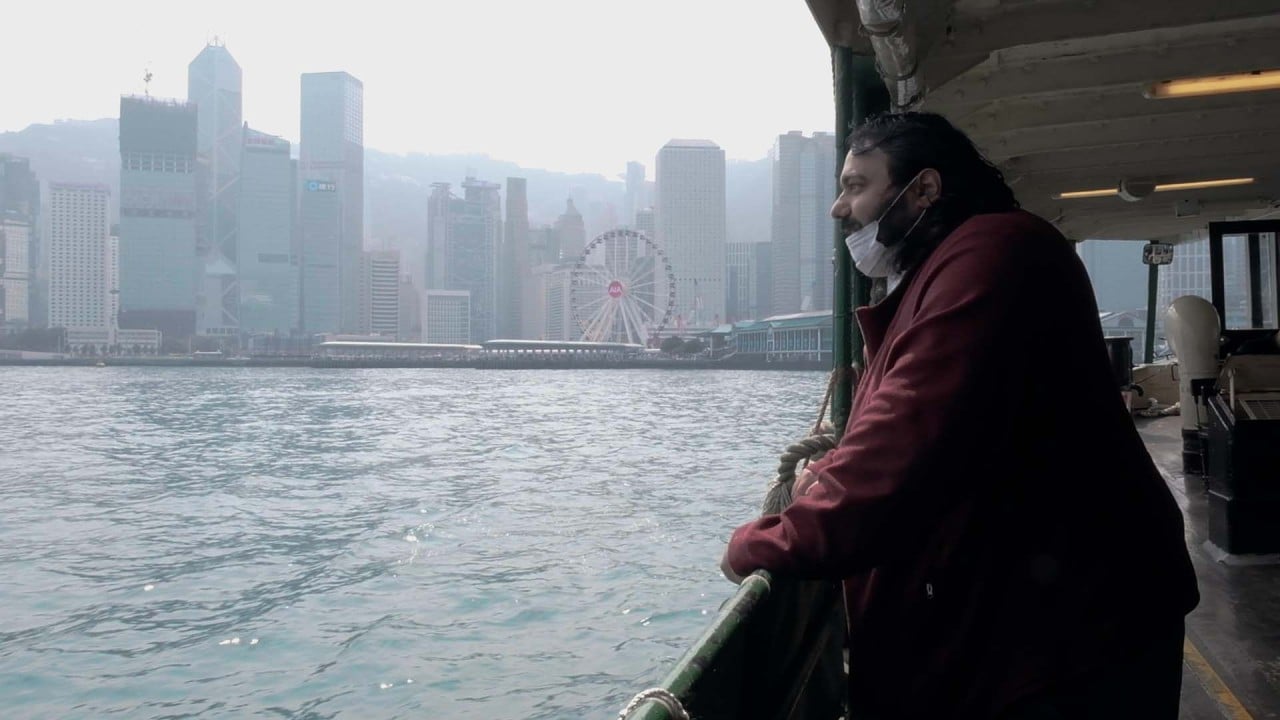
The Sunny Side of the Street star Sahal Zaman talks about journey to Hong Kong’s big screen after historic win at local film awards
- First South Asian actor to win best new performer at Hong Kong Film Awards says he knew little about movie industry after first arriving in city at age four
- Film director Ray Lau describes debut film as tale for all immigrants in Hong Kong, charting their lives, loneliness and expectations
Wearing a burgundy suit and a nervous smile, 11-year-old Sahal Zaman last month became the first South Asian actor to win best new performer at the Hong Kong Film Awards after receiving the prize from Oscar-winning actress Michelle Yeoh.
“I love acting very much, can everyone please go watch The Sunny Side of the Street in theatres?” he said during his acceptance speech.
Starring Zaman as its lead character, the movie tells the story of a Hong Kong-born Pakistani boy from a family of refugees who forms an unexpected bond with a local taxi driver.
The actor earlier this month said he did not know much about the movie industry when he moved to Hong Kong from Pakistan at the age of four.
“I remember I watched my first movie – Marvel’s Spider-Man – three years ago,” he said.
Dazzling film awards tear up the Hong Kong script
Neither did he know anything about Anthony Wong Chau-sang, the veteran actor who starred opposite him.
Director Ray Lau Kok-rui said he was able to spot the then nine-year-old’s potential among a crowd of 100 children during one of the production’s talent-scouting sessions, where crew members kept an eye out for budding actors.
“I think the most important characteristic about Sahal is that he is always very welcoming to any kind of challenge that we gave him,” Lau said.
“Most of the kids when they join us, they see themselves as in a class or in some games, so they’re very concerned about how the adults see themselves … they do not give us the real characteristics of them during the casting.
“But Sahal is always being himself. So I think he is a very truthful kid.”
In the film, the father of the young protagonist is a former lawyer forced to flee Pakistan and seek asylum with his family in Hong Kong, where he scrambles to build a life with minimal government support and no right to work while the household’s refugee status is awaiting review. Zaman’s character becomes a thief and joins street gangs in exchange for valuables.

But Zaman admitted he had originally not understood some of the issues being presented in the film.
“I did not know what a refugee or asylum seeker was. [The film crew] had to explain it to me a lot,” Zaman said. “[The film] is very special because Hong Kong rarely produces movies that shed light on the issue. I think [refugees’] lives are so difficult and poor.”
Lau, who left his native Malaysia to come to Hong Kong in 2008, said he had wanted to tell the story of immigrants settling in the city.
“When I started writing about this story, I wanted to portray some of the families that have this kind of immigrant experience in their family story,” he said
Lau’s family moved to Malaysia four generations ago, and he said he empathised with people of different ethnicities across all walks of life that had arrived in Hong Kong for their own reasons.
“I have always wanted to tell the story about how these kinds of people settle down or leave a place,” he said.
‘Chow Yun-fat of Pakistan’: ethnic minority Hong Kong boy, 10, tipped for stardom
Patricia Ann Ho, founder of Hong Kong Dignity Institute, a charity that provides social, mental and legal support for vulnerable individuals in the city, described the movie as “surprising”.
“It was really surprising that anyone would ever make a movie in Hong Kong that touches on the struggles of refugees because, generally speaking, it is a very unpopular subject,” said Ho, who is also a University of Hong Kong principal law lecturer.
“And there’s a lot of bias in Hong Kong against refugees. So I thought it was a very risky thing to do.”
The veteran lawyer, who helped Lau with research for his movie, said the film was bold for accurately portraying the lives of refugees in Hong Kong, such as the living conditions they faced and being targeted by criminal gangs.
“Because [refugees] are desperate for money to support themselves, they’re desperate to find ways to support themselves. And there are no legal ways available. So a lot of criminal syndicates exploit that and get them to do various things,” Ho said.
“The film does not shy away from that. But you’re given an insight into why they do not really have a choice, which I find really interesting.”
Faster screening of asylum seekers in Hong Kong, but 2,600 appeals still pending
But some refugees living in Hong Kong said they disliked how the film portrayed them.
Betty*, who came to the city from Southeast Asia, said she watched the movie two months ago with her son and felt deeply disappointed.
“[In the movie,] they steal, they do drugs, they join gangs … even if it is fiction, you’re still a human, you’ll at some point believe it when watching the movie,” she said.
The 40-year-old mother of two added that her son was unhappy seeing children his age stereotyped in such a way.
“We refugee mothers work hard to raise our children to be respectable people and work hard. Even though we do not have much, I teach my son to be law-abiding,” she said.
Betty said she wished the movie had offered a more empowering message for refugees living in the city.
“[Refugees in the movie] should have been given a better life in the end because the reality, our lives, is already sad,” she said.

Lau stressed that the film was about all immigrants living in Hong Kong, not just refugees and asylum seekers.
Wong’s character in the film, taxi driver Yat, is also an immigrant who came to the city, arriving illegally from mainland China in the 70s.
“It’s my intention to tell the story of us [immigrants], how we live in the city, the loneliness and our expectations for our next generations or our future,” Lau said.
Asylum seekers in Hong Kong wait up to 20 years for host countries to take them
In the movie’s final scene, Hassan sets off by sea to Canada in the hope of a better future after Yat pays a human trafficker, ending on a cliffhanger with no confirmation that the boy arrived there safely.
The director said he had no conclusions about its ending.
“In this film, the most important thing I want to talk about is the encounter of Yat and Hassan: how they know each other, how they get to know the deepest concerns and deepest things in each other’s life experience,” Lau said.
“They have this one night journey and then at the end, they have to say goodbye to each other.”
Asked whether he thought his character had any chance of a better future, Zaman said: “I think he does.”
*Name changed at interviewee’s request.


